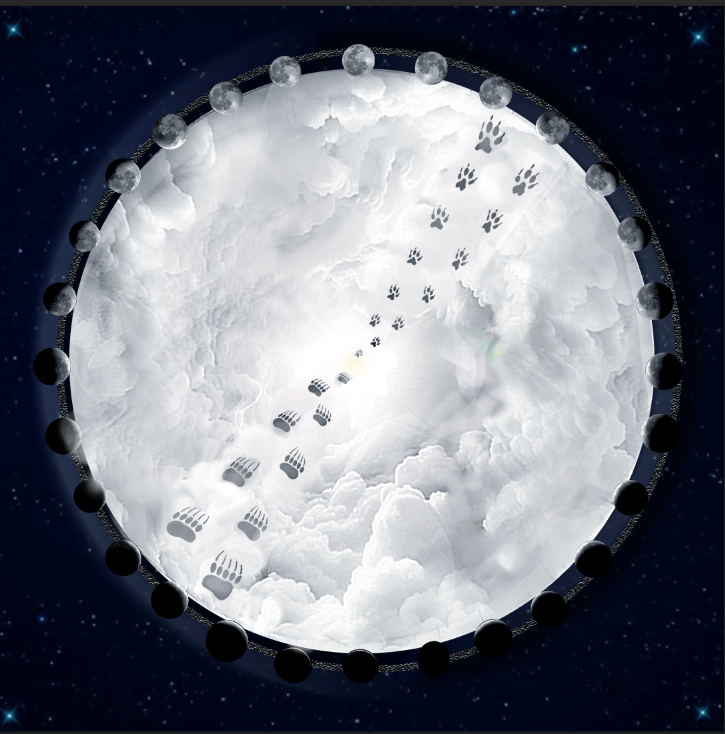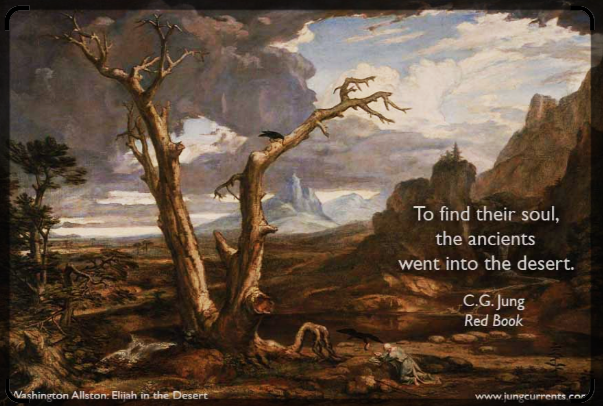Four Illustrated C.G. Jung Quotations on the Spirit
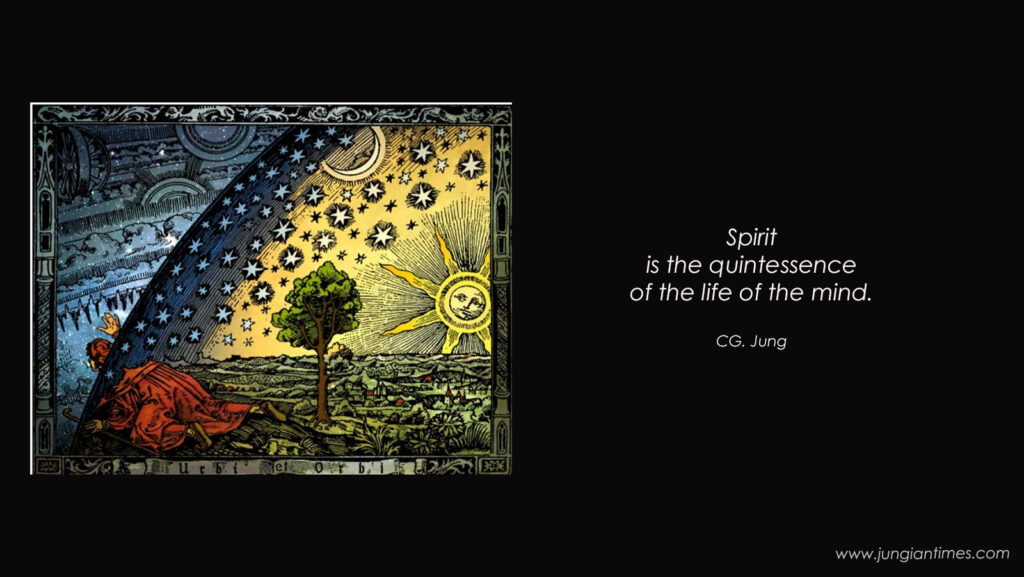
From this point of view one might easily abandon all hope of discovering anything fundamental about that elusive thing called “spirit.” One thing alone seems clear: just as the “living being” is the quintessence of life in the body, so “spirit” is the quintessence of the life of the mind; indeed, the concept “spirit” is often used interchangeably with the concept “mind.” Viewed thus, “spirit” exists in the same transliminal realm as “living being,” that is, in the same misty state of indistinguishableness. And the doubt as to whether mind and body may not ultimately prove to be the same thing also applies to the apparent contrast between “spirit” and “living being.” They too are probably the same thing.
Structure and Dynamics of the Psyche
Paragraph 621
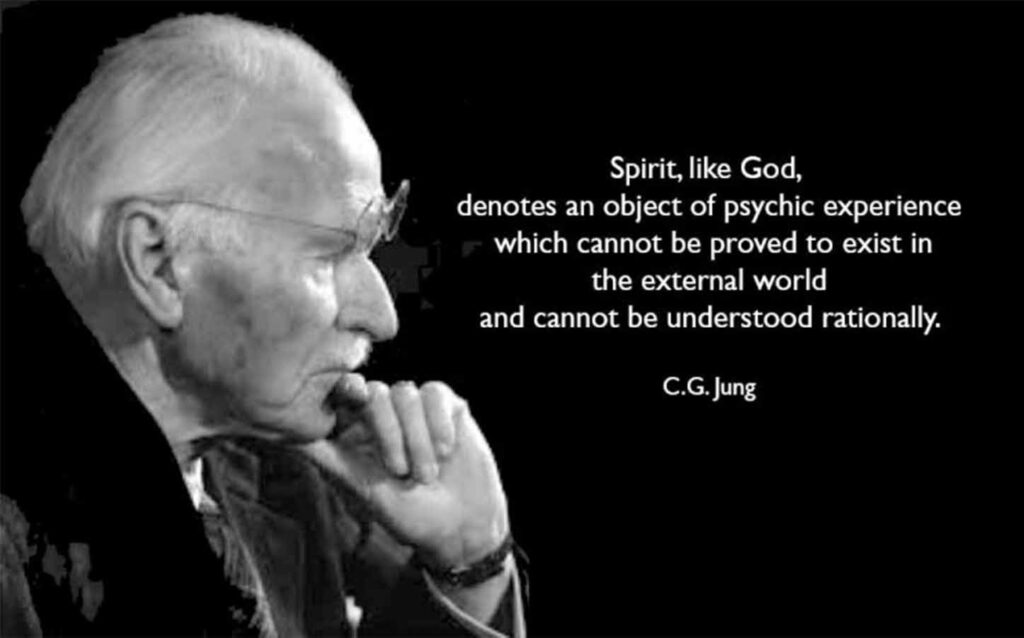
After this more general discussion I would now like to come back to the concept of spirit, which we were unable to grasp from our former realistic standpoint. Spirit, like God, denotes an object of psychic experience which cannot be proved to exist in the external world and cannot be understood rationally. This is its meaning if we use the word “spirit” in its best sense. Once we have freed ourselves from the prejudice that we have to refer a concept either to objects of external experience or to a priori categories of reason, we can turn our attention and curiosity wholly to that strange and still unknown thing we call “spirit.” It is always useful in such cases to take a glance at the probable etymology of the word, because it often happens that a word’s history throws a surprising light on the nature of the psychic fact underlying it.
Structure and Dynamics of the Psyche
Paragraph 626
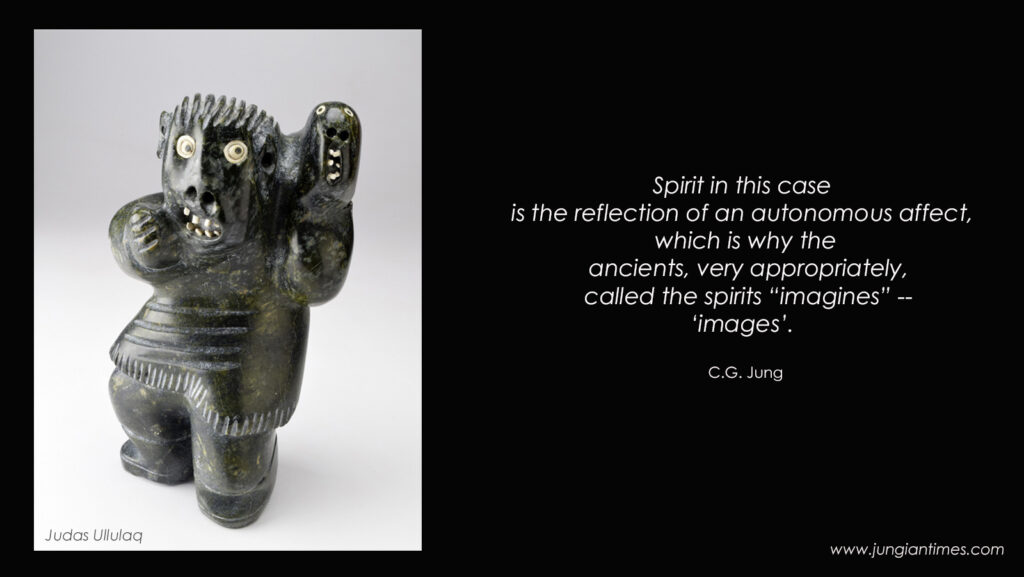
The primitive atmosphere in which the word “spirit” came to birth exists in us still, though of course on a psychic level somewhere below consciousness. But as modern spiritualism shows, it needs very little to bring that bit of primitive mentality to the surface. If the etymological derivation (which in itself is quite plausible) holds good, then “spirit” in this sense would be the image of a personified affect. For instance, when a person lets himself be carried away by imprudent talk, we say his tongue has run away with him, which is equivalent to saying that his talk has become an independent being that has snatched him up and run off with him. Psychologically we would say: every affect tends to become an autonomous complex, to break away from the hierarchy of consciousness and, if possible, to drag the ego after it. No wonder, then, that the primitive mind sees in this the activity of a strange invisible being, a spirit. Spirit in this case is the reflection of an autonomous affect, which is why the ancients, very appropriately, called the spirits imagines– ‘images’.
Structure and Dynamics of the Psyche
Paragraph 643
The Sculpture: On Judas Ulluliaq
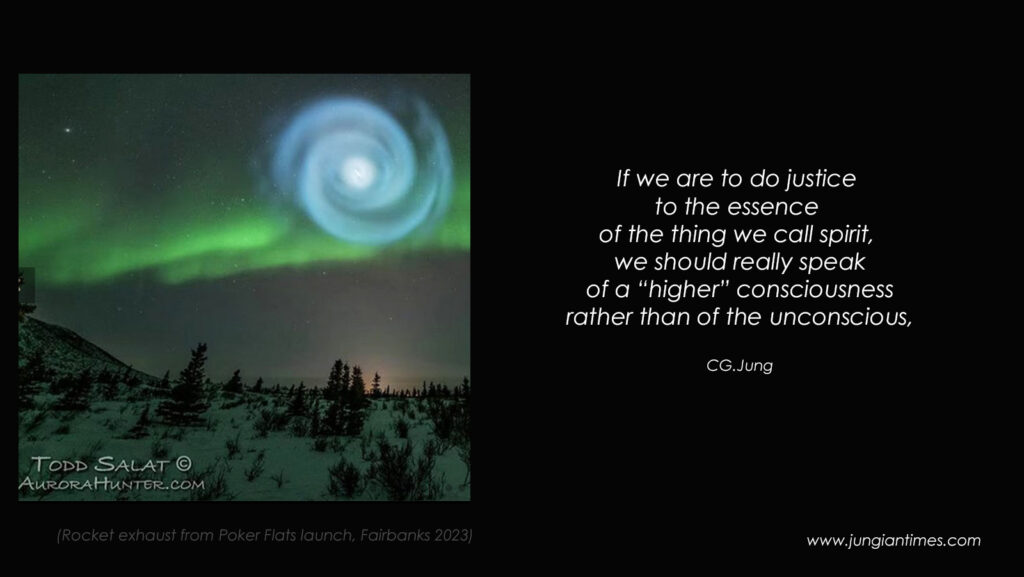
From the psychological point of view the phenomenon of spirit, like every autonomous complex, appears as an intention of the unconscious superior to, or at least on a par with, the intentions of the ego. If we are to do justice to the essence of the thing we call spirit, we should really speak of a “higher” consciousness rather than of the unconscious, because the concept of spirit is such that we are bound to connect it with the idea of superiority over the ego-consciousness. The superiority of the spirit is not something attributed to it by conscious reflection, but clings to it as an essential quality, as is evident from the records of all ages, from the Holy Scriptures down to Nietzsche’s Zarathustra. Psychologically, the spirit manifests itself as a personal being, sometimes with visionary clarity; in Christian dogma it is actually the third Person of the Trinity. These facts show that spirit is not always merely a maxim or an idea that can be formulated, but that in its strongest and most immediate manifestations it displays a peculiar life of its own which is felt as an independent being. So long as the spirit can be named and formulated as an intelligible principle or a clear idea, it will certainly not be felt as an independent being. But when the idea or principle involved is inscrutable, when its intentions are obscure in origin and in aim and yet enforced.
Structure and Dynamics of the Psyche
Paragraph 643
Image: Rocket Exhaust Spira over Fairbanksl
“All songs come to man when he is alone in the great solitude.”
sparker/ai “All songs come to man when he is alone in the great solitude.“ Of the many descriptions about the pull of Alaska and the arctic I have come across,…
Tracks in the Sky
The noise of civilization interferes with the experience of the Unconscious; going into the wilderness can be an opening to those whispers. This was the dream after ten days of…
C.G. Jung: “To find their soul, the ancients went into the desert.”
C.G. Jung: “To find their soul, the ancients went into the desert.” Continuing the theme of the search for soul and spirt…. From the Red Book Everything to come was…


